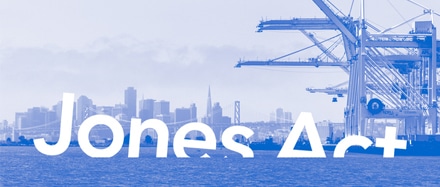Maritime & Jones Act Claim Attorneys
Brock & Stout Attorneys at Law is proud to have represented injured Offshore Maritime Workers for many years. We have successfully recovered large settlements for our offshore clients and we can help you with any maritime injury-related questions you may have. If you work offshore or on a vessel, it is important that you understand your rights under the Jones Act, general maritime law and the laws of maintenance and cure.
As an offshore maritime worker you may have significant rights under both the Jones Act as well as Maritime Law. Additionally, if you were injured while working offshore on an oil rig or a vessel your employer may owe you maintenance and cure during your recovery. The knowledgeable legal team at Brock & Stout can discuss and clarify your rights with you.
Don’t let yourself be taken advantage of simply because you do not know all of your rights. The Jones Act and Maritime Law can be very complicated. Your company knows its rights under the law and you should too. Call us immediately for a confidential discussion regarding your rights, choices and options under the Jones Act and maritime law.
What is the Jones Act?
The Jones Act is a federal statute which protects seamen. Seamen are people who spend a significant amount of their time working as a crewmember or a captain on a vessel in navigation. The Jones Act allows a seaman to file a direct lawsuit against their employer for any negligence in causing or contributing to the seaman’s injury. If you are a seaman, and you suffer an injury or accident while working offshore or on a vessel, the Jones Act may allow you to recover significant compensation from your employer.
To Whom the Jones Act Applies?
The Jones Act applies to any individual who meets the legal definition of a “seaman”. Under the Jones Act a seaman is defined as an individual (1) who is more or less permanently assigned to (2) a vessel or fleet of vessels which are (3) owned or operated by your employer or a common entity. The ‘permanent assignment’ requirement has been interpreted as requiring that you spent at least 30 percent or more of your time working aboard a vessel or a fleet of vessels. The definition of a ‘vessel’ is very broad and includes offshore oil rigs, barges, jack-up boats as well as all traditional-type vessels. The ‘common ownership’ requirement does not necessarily mean that your company actually owns the vessel or fleet of vessels to which you are assigned. As long as you can prove that there is some type of common ownership or control over the vessel or fleet of vessels to which you are assigned, you may be able to satisfy this requirement of the Jones Act.
What Benefits Does the Jones Act Give to You?
The Jones Act provides very significant protection for injured offshore workers. The Jones Act allows you to file a lawsuit directly against your company for any and all damages that you may suffer as a result of an injury while working offshore. While you do have to prove that your company or one of your co-employees was at fault in causing or contributing to your injury, the negligence standard under the Jones Act is very light. The Jones Act requires that your employer give you “a safe place to work”, properly train you as well as all of your co-employees and provide you with proper equipment and safety protection to perform your work. If your company fails in any of these obligations, you may have a very good suit against your company under the Jones Act.
One of the most important benefits of the Jones Act is that it allows you to recover any and all of your damages that you have suffered due to your injury. This includes full loss of past and future wages, full loss of fringe benefits, pain and suffering both past and future, medical expenses both past and future as well as any other damages you can prove from your injury. These rights are a tremendous benefit to you which are very different than regular workers’ compensation laws which typically limit the employee to collecting only a percentage of their income for a very short period of time in addition to medical expenses. Many Jones Act cases can easily result in settlements of several hundred thousand dollars if the employee is no longer able to return to maritime work.
What Is Maintenance and Cure?
Maintenance and cure law applies to any injured seaman. It is said to arise out of the contract of employment you have with your company. The seaman can file suit against their employer seeking maintenance and cure benefits if the seaman suffers an injury while in the service of the vessel. Maintenance and cure law does not require that the injury was due to any fault on the part of your employer. You will prevail on your maintenance and cure claim by proving simply that your injury happened while you were in the service of the vessel. There is no requirement that you prove that your company was at fault in regard to your injury. [If you do prove fault on the part of your company, you then may qualify for significant additional damages under the Jones Act.
What Benefits Do You Get from Maintenance and Cure Laws?
Maintenance is defined as the amount of money necessary to keep you in the same lifestyle you enjoyed on the vessel while you recover from your injury. Typically this includes money sufficient to pay your rent, food bills and other monthly expenses on land. Unfortunately many companies only pay a flat rate of $15.00 to $20.00 a day. We believe this is illegal and we always make this illegal action a part of any claim we file for injured seamen. We highly recommend that you send your company a written out list of your monthly expenses thereby putting them on notice as to how much money you need each month while you are injured.



